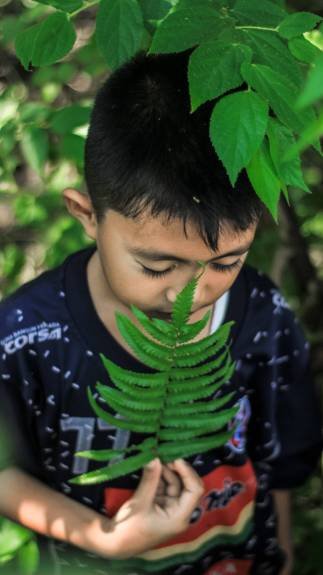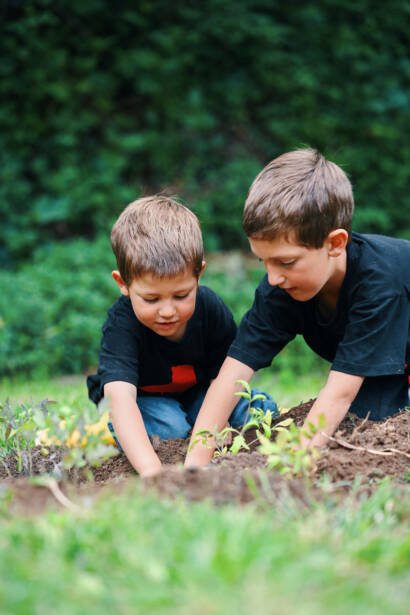NEP 2020: A Paradigm Shift
The National Education Policy (NEP) 2020 represents a groundbreaking shift in India’s educational paradigm, with a clear mandate to revolutionize learning through the integration of experiential methodologies. This policy envisions a transformative educational experience that moves beyond rote memorization to foster holistic development, practical skills, and critical thinking.
Key Focus Areas of NEP 2020 on Experiential Learning
- Holistic Education Approach: NEP 2020 advocates for an education system that addresses cognitive, emotional, and social dimensions of student development. Experiential learning, with its emphasis on hands-on activities and real-world applications, aligns perfectly with this holistic approach. It helps students build a comprehensive skill set that extends beyond academic knowledge, preparing them for life’s diverse challenges.
- Real-World Application: The policy stresses the importance of bridging the gap between theoretical knowledge and practical application. Experiential learning facilitates this by immersing students in real-life scenarios and problem-solving tasks. This approach enables learners to apply classroom concepts in tangible contexts, enhancing their understanding and retention while developing practical skills that are crucial in today’s job market.
- Enhanced Student Engagement: Engagement and motivation are key to effective learning. NEP 2020 promotes active learning environments where students are actively involved in their educational journey. Experiential learning creates dynamic and interactive learning experiences that captivate students’ interests, encourage active participation, and foster a deeper connection with the material.
- Development of 21st-Century Skills: In response to the demands of a rapidly evolving world, NEP 2020 emphasizes the development of essential 21st-century skills, including critical thinking, creativity, and collaboration. Experiential learning provides a fertile ground for cultivating these skills through activities that require analysis, innovation, and teamwork, thus equipping students with the competencies needed to thrive in a complex global landscape.
- Cultural and Contextual Relevance: Recognizing the importance of cultural roots and local contexts, NEP 2020 encourages the integration of cultural heritage into the curriculum. Experiential learning allows students to engage with and explore their cultural heritage through projects, field trips, and community involvement, fostering a sense of identity and appreciation for their cultural background.


Deliverables for Educational Institutions
- Curriculum Design: Institutions need to redesign curricula to incorporate experiential learning components. This involves integrating hands-on projects, real-world problem-solving tasks, and field-based activities that align with theoretical concepts. Curricula should be designed to ensure that learning is interactive, contextually relevant, and connected to students’ real-life experiences.
- Teacher Training and Development: Effective implementation of experiential learning requires educators to be adept at facilitating interactive and engaging learning environments. Professional development programs should focus on equipping teachers with the skills to design and deliver experiential learning activities, assess student performance in non-traditional ways, and foster an environment that encourages exploration and reflection.
- Infrastructure and Resources: Educational institutions should invest in resources and infrastructure that support experiential learning. This includes setting up labs, project spaces, and technology that facilitate hands-on activities. Additionally, partnerships with local communities, businesses, and cultural organizations can enhance the real-world relevance of learning experiences.
- Assessment and Evaluation: Traditional assessment methods may not fully capture the benefits of experiential learning. Institutions should develop new assessment strategies that evaluate practical skills, problem-solving abilities, and personal growth. Portfolio assessments, project-based evaluations, and reflective practices can provide a more comprehensive measure of student learning outcomes.
- Community and Parental Involvement: Engaging the broader community and parents in the educational process can enrich the experiential learning experience. Schools should foster partnerships with local organizations, businesses, and cultural institutions to provide students with diverse learning opportunities. Involving parents in school activities and learning projects can also enhance the support system for students’ educational journeys.
NEP 2020’s focus on experiential learning offers a transformative opportunity for Indian educational institutions to innovate and excel. By embracing this approach, schools and colleges can create enriching, practical, and engaging learning experiences that prepare students for a successful future. Join us in this educational revolution, where learning is not just a process but an adventure of discovery and growth.
Implementing Experiential Learning
At Curriculture, we are committed to advancing NEP 2020’s vision by implementing experiential learning across academic institutions. Our approach involves collaborating with educational institutions to design and integrate experiential learning components into their curricula. We provide tailored support in curriculum design, teacher training, and resource development to ensure successful implementation. By fostering a culture of experiential learning, we empower institutions to offer enriched, practical, and engaging educational experiences that align with NEP 2020’s transformative goals. As we embark on this exciting journey, let us embrace the power of experiential learning and work together to build a brighter, more equitable, and more innovative tomorrow.
Join us at the nexus of innovation and education. Together, let’s shape tomorrow’s leaders through the power of experiential learning. Welcome to Curriculture – where every experience is a lesson, and every lesson shapes a future.


